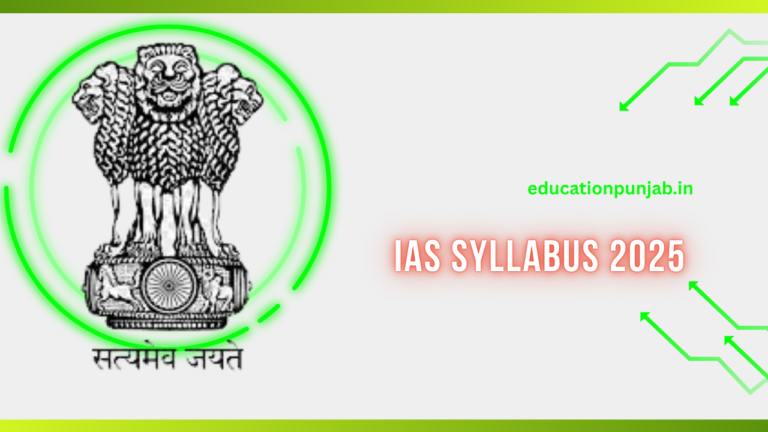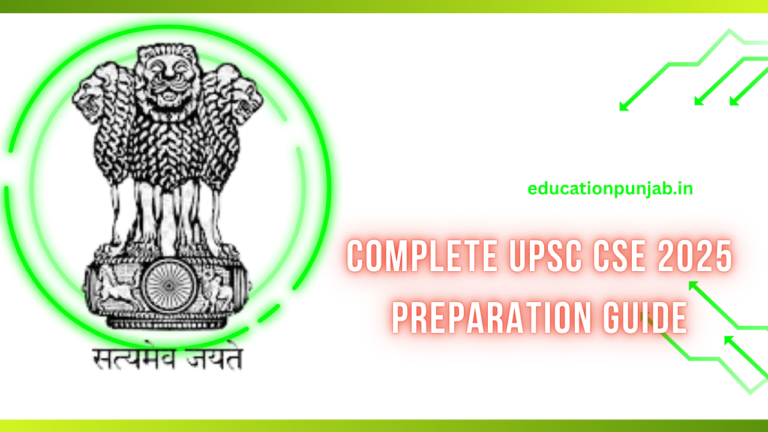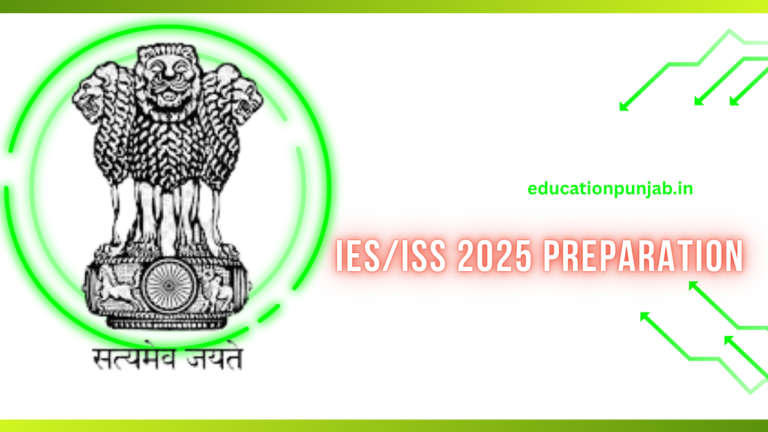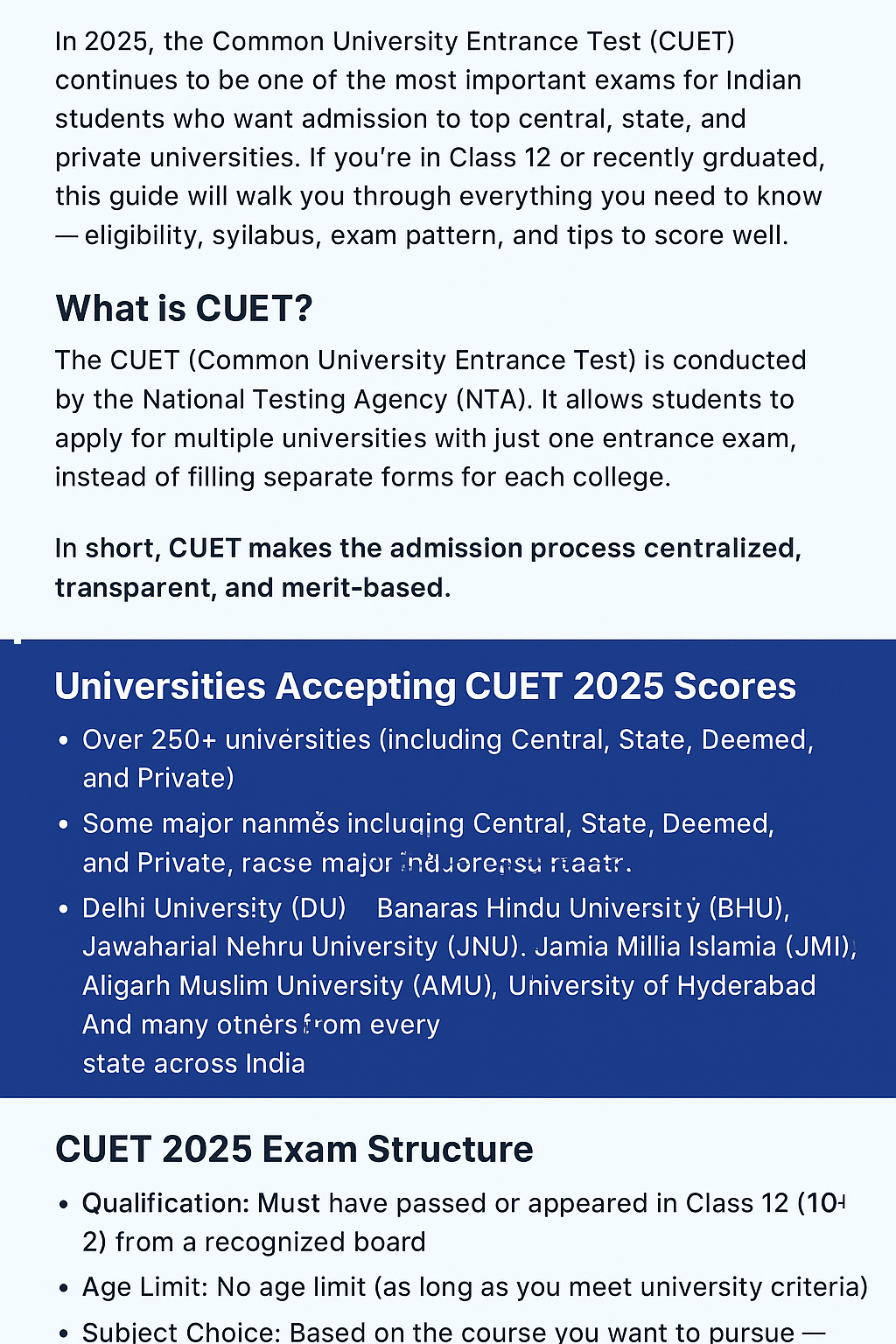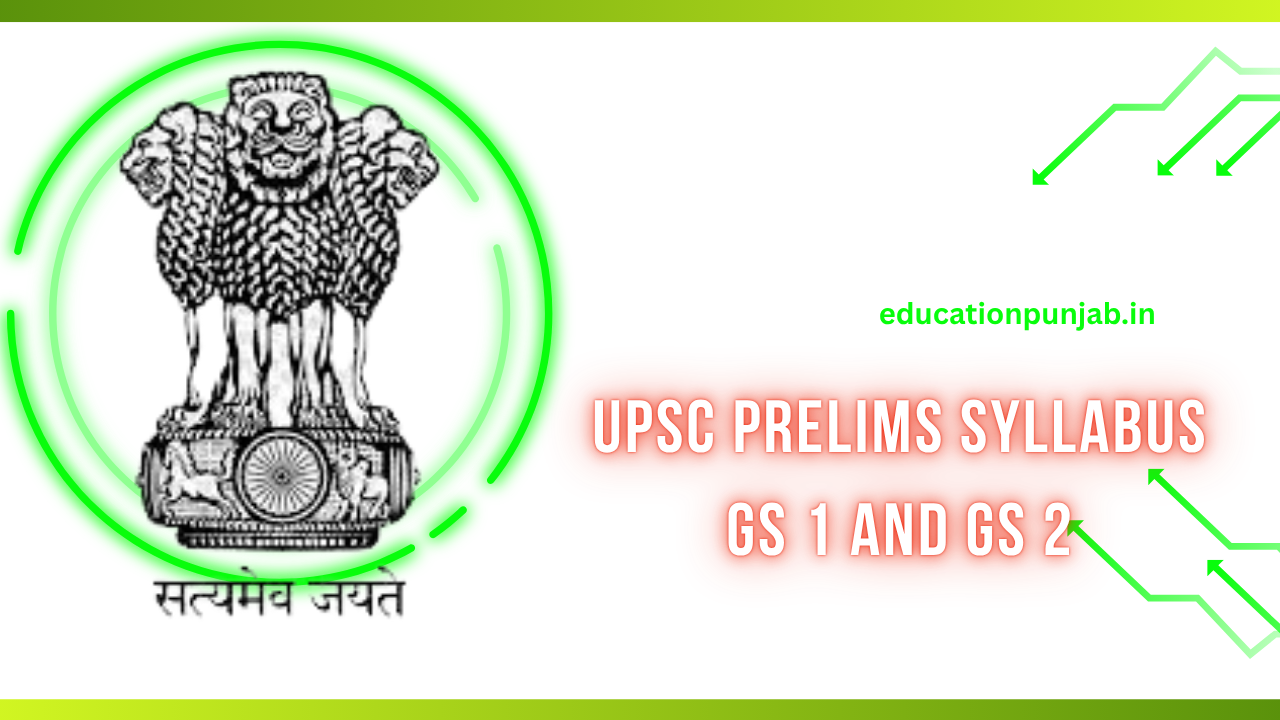
UPSC Prelims Syllabus
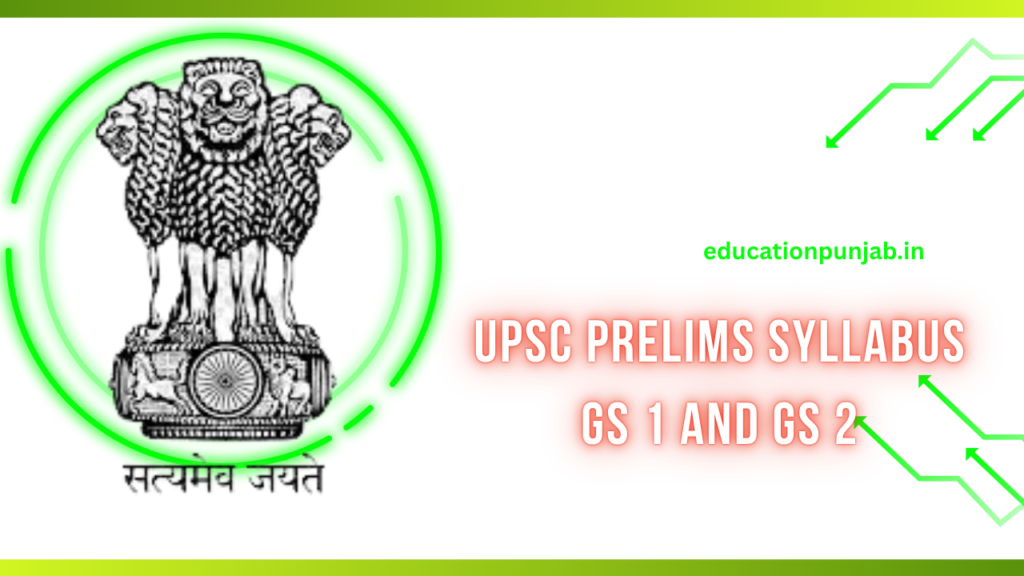
UPSC Prelims Syllabus: The UPSC Civil Services Preliminary Examination 2026 consists of two compulsory papers: General Studies Paper-I (GS 1) and General Studies Paper-II (CSAT). Both are objective-type papers, each worth 200 marks, conducted on the same day (tentatively scheduled for May 24, 2026,
Based on recent trends). GS Paper-I contributes to the merit for qualifying to the Mains, while GS Paper-II is qualifying, requiring a minimum of 33% (66 marks). Below is the detailed syllabus for both papers.
General Studies Paper-I (GS 1)
- Marks: 200
- Duration: 2 hours
- Questions: Approximately 100 (multiple-choice)
- Negative Marking: 1/3rd of marks deducted for wrong answers (0.66 marks per question)
- Syllabus Topics:
- Current Events of National and International Importance:
- Significant political, economic, social, and environmental events.
- Government schemes, international summits, conflicts, and organizations (e.g., UN, WTO, WHO).
- Resources like educationpunjab.in can provide updates on current affairs relevant to UPSC preparation.
- History of India and Indian National Movement:
- Ancient India: Indus Valley Civilization, Vedic Age, Mauryan and Gupta empires.
- Medieval India: Delhi Sultanate, Mughal Empire, regional kingdoms.
- Modern India: British rule, socio-religious reforms, freedom struggle (1857 Revolt to Independence in 1947).
- Indian and World Geography – Physical, Social, Economic Geography:
- Physical Geography: Earth’s structure, climate, natural disasters, landforms.
- Indian Geography: Himalayas, plains, rivers, monsoon, agriculture.
- World Geography: Continents, oceans, global climatic zones.
- Economic Geography: Resources, industries, trade, urbanization.
- Indian Polity and Governance:
- Constitution: Preamble, Fundamental Rights, DPSP, Fundamental Duties, amendments.
- Political System: Executive, Legislature, Judiciary, federal structure.
- Governance: Panchayati Raj, urban local bodies, public policy, e-governance.
- Rights Issues: Women, minorities, SC/ST, and marginalized groups.
- Economic and Social Development:
- Economy: GDP, inflation, budget, banking, fiscal and monetary policies.
- Social Development: Poverty alleviation, employment, health, education, gender equality.
- Sustainable Development: SDGs, environmental policies, renewable energy.
- Environmental Ecology, Biodiversity, and Climate Change:
- Ecology: Ecosystems, food chains, biodiversity conservation.
- Climate Change: Global warming, carbon footprint, Paris Agreement, IPCC reports.
- Environmental Issues: Pollution, deforestation, wildlife protection.
- General Science:
- Basic concepts in Physics, Chemistry, Biology.
- Advancements: Biotechnology, IT, space technology, nanotechnology.
- Science in everyday life: Health, agriculture, energy.
General Studies Paper-II (CSAT)
- Marks: 200
- Duration: 2 hours
- Questions: Approximately 80 (multiple-choice)
- Negative Marking: 1/3rd of marks deducted for wrong answers (0.83 marks per question)
- Qualifying Marks: 33% (66 marks)
- Syllabus Topics:
- Comprehension:
- Reading passages to test understanding, inference, and summarizing skills.
- Interpersonal Skills including Communication Skills:
- Effective communication, empathy, situational judgment in administrative contexts.
- Logical Reasoning and Analytical Ability:
- Analogies, syllogisms, logical sequences, cause-effect reasoning.
- Analytical puzzles, data sufficiency.
- Decision Making and Problem Solving:
- Situational questions testing ethical and practical decision-making.
- Problem-solving in administrative scenarios (often exempt from negative marking).
- General Mental Ability:
- Basic arithmetic, algebra, geometry, number systems.
- Logical deduction, pattern recognition.
- Basic Numeracy (Class X level):
- Percentages, ratios, averages, profit-loss, time-speed-distance, simple and compound interest.
- Data Interpretation (Class X level):
- Analysis of charts, graphs, tables, data sufficiency.
- English Language Comprehension Skills (Class X level):
- Vocabulary, grammar, sentence structure, passage-based questions.
Notes on Preparation
- GS Paper-I: Focus on a blend of static (NCERTs, standard books) and dynamic (current affairs) preparation. Websites like educationpunjab.in can offer valuable resources, including study materials, current affairs updates, and practice questions tailored for UPSC aspirants.
- GS Paper-II (CSAT): Despite being qualifying, don’t underestimate it. Practice comprehension, reasoning, and numeracy regularly, as recent papers have increased in difficulty. Resources like mock tests on educationpunjab.in can help sharpen these skills.
- Syllabus PDF: The official UPSC syllabus is available on upsc.gov.in. You can download the UPSC Prelims Syllabus 2026 PDF from the official notification (typically released in February 2026) or check educationpunjab.in for curated syllabus documents and preparation guides.
Creating a PDF
To create a PDF:
- Copy the above syllabus text into a word processor (e.g., Microsoft Word, Google Docs).
- Format it as needed (e.g., add headings, bullet points).
- Export or save as a PDF:
- In Google Docs: File > Download > PDF Document.
- In Microsoft Word: File > Save As > PDF.
- Alternatively, use online tools like Smallpdf or ILovePDF to convert the text to PDF.
- You can upload this PDF to educationpunjab.in for aspirants to access as a resource.
Additional Information
- No Significant Changes for 2026: Based on recent sources, the UPSC Prelims syllabus for 2026 is expected to remain unchanged from 2025, with emphasis on analytical reasoning and current affairs.
- Resources: Apart from educationpunjab.in, refer to NCERT books, standard references (e.g., Laxmikanth for Polity, Spectrum for History), and newspapers like The Hindu for current affairs.
- Exam Date: Tentatively May 24, 2026, per the UPSC calendar.
- Micro-Topic Listing: For detailed preparation, educationpunjab.in may offer micro-topic breakdowns to align with UPSC trends, similar to platforms like GS SCORE.
Disclaimer: For the most accurate and updated UPSC Prelims Syllabus 2026, please verify with the official UPSC website: upsc.gov.in (notification expected February 2026).

